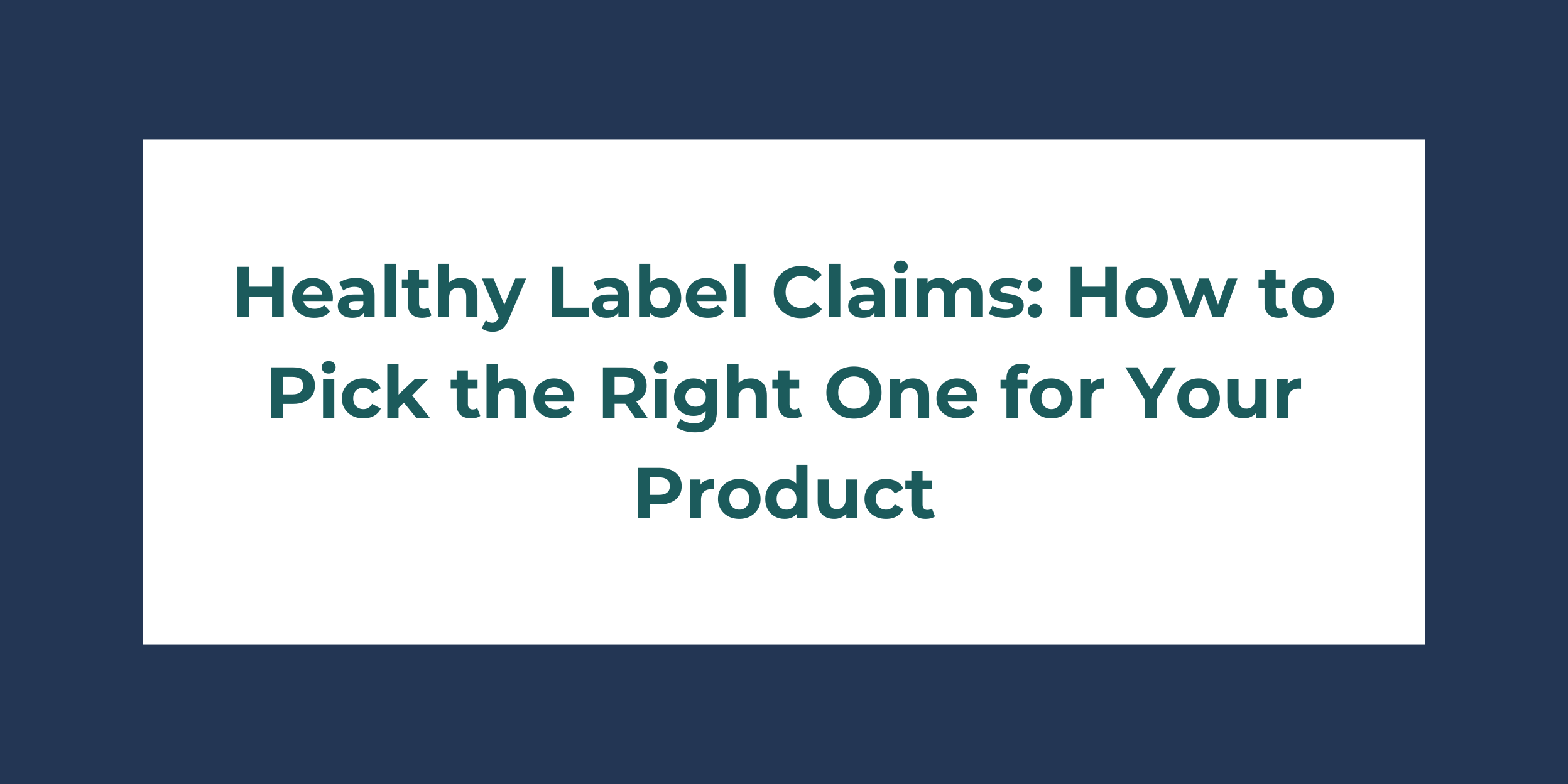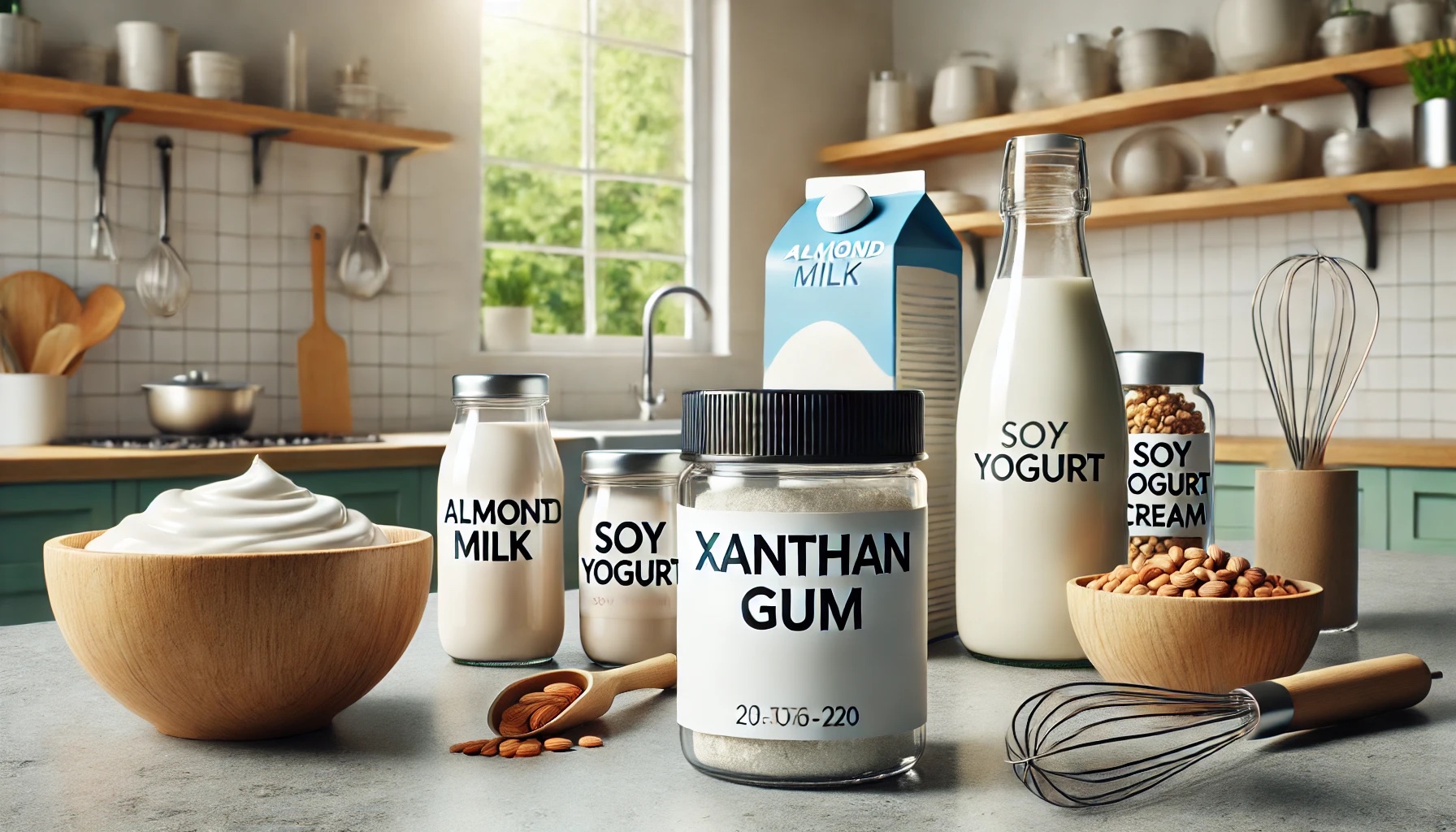In today’s health-conscious market, consumers are increasingly drawn to products that promise better health benefits.
As a manufacturer, making the right health label claims can significantly boost your product’s appeal and credibility.
However, navigating the maze of regulations and understanding which claims are most effective can be daunting.
This article will guide you through the process of selecting the appropriate health label claims for your product.
Understanding Healthy Label Claims
Health claims on food labels are statements that suggest a relationship between consuming a product and health benefits. These claims fall into three main categories:
- Nutrient Content Label Claims: These claims describe the level of a nutrient in a product. Examples include “low fat,” “high fiber,” “reduced sodium,” or “sugar-free.”
- Health Label Claims:
- These imply a relationship between a food or food component and reduced risk of a disease or health-related condition.
- Examples : “may reduce the risk of heart disease” or “calcium and vitamin D for strong bones.”
- Structure/Function Label Claims:
- These describe the role of a nutrient or dietary ingredient intended to affect normal structure or function in humans.
- Examples: “supports immune health” or “promotes healthy digestion.”
Regulatory Compliance
Before making any health claims, it’s crucial to understand the regulatory landscape. Here are the key regulatory bodies and their guidelines:
- United States:
- The Food and Drug Administration (FDA) oversees health claims on food labels.
- The FDA has stringent guidelines and criteria for what constitutes a permissible health claim.
- Claims must be substantiated by scientific evidence and must not be misleading.
- Europe:
- The European Food Safety Authority (EFSA) regulates health claims under Regulation (EC) No 1924/2006.
- EFSA evaluates scientific evidence to ensure that health claims are truthful and not misleading.
- India:
- The Food Safety and Standards Authority of India (FSSAI) regulates health claims.
- FSSAI provides guidelines on permissible health claims and ensures that these claims are scientifically validated and not misleading.
Ensure your claims are scientifically substantiated. Misleading or unverified claims can lead to legal repercussions and damage your brand’s reputation.
Familiarise yourself with the regulatory requirements in your target market and consult with a regulatory expert if needed.
Choosing the Right Claim
- Identify Your Target Audience:
- Understand who your product is for. Different demographics have different health priorities.
- For example, younger consumers might be more interested in energy-boosting or skin health claims, while older consumers might prioritise heart health or bone strength.
- Highlight Unique Selling Points:
- What sets your product apart? If your product has a high concentration of a particular nutrient, emphasise that with a nutrient content claim. For instance, if you have a high-protein snack, “excellent source of protein” could be a compelling claim.
- Backed by Science:
- Choose claims that you can support with scientific evidence. This not only ensures regulatory compliance but also builds consumer trust.
- Clinical studies, peer-reviewed research, and expert endorsements can all provide a solid foundation for your claims.
- Consumer Trends and Preferences:
- Stay abreast of current health trends.
As consumer awareness and preferences evolve, so should your health claims. - For example, claims related to “natural” and “organic” ingredients are increasingly popular.
- Stay abreast of current health trends.
Examples of Effective Health Claims
- “High in Fiber”:
- This claim can appeal to consumers looking to improve their digestive health.
- Products like cereals, granola bars, and bread can benefit from this claim if they meet the required fiber content.
- “Supports Immune Health”:
- In the wake of global health concerns, immune health has become a top priority.
- Vitamins like C and D, and minerals like zinc, are associated with immune support.
- “May Reduce the Risk of Heart Disease”:
- For products rich in omega-3 fatty acids, such as certain fish oils or flaxseed products, this claim can be powerful.
- “Low Sodium”:
- With increasing awareness of hypertension and heart health, reducing sodium intake is a significant concern for many consumers.
- Snacks, soups, and ready-to-eat meals can highlight this claim.
- “Natural Energy Boost”:
- For products containing natural caffeine sources or B vitamins, this claim can attract consumers looking for healthier alternatives to energy drinks.
- “Zero Added Sugar”
- Effective for diverse variety of products where Caloric sweeteners are not used.
Marketing Your Health Claims
Once you’ve chosen the right health claim, it’s important to market it effectively:
- Clear and Prominent Placement:
- Ensure the claim is easy to find and read on your packaging.
- Use bold fonts and contrasting colours to make it stand out.
- Educational Content:
- Use your website, social media, and other marketing materials to educate consumers about the benefits of your product.
- Explain the science behind your health claims in an accessible way.
- Third-Party Endorsements:
- Certifications from recognized health organisations can add credibility to your claims.
- Look for opportunities to partner with reputable health bodies or obtain certifications.
Conclusion
Selecting the right health label claim for your product is a blend of understanding regulatory requirements, identifying consumer needs, and substantiating your claims with solid science.
By thoughtfully choosing and effectively marketing your health claims, you can enhance your product’s appeal, build consumer trust, and stand out in a competitive market.
Always prioritise honesty and transparency to maintain credibility and foster long-term customer loyalty.








